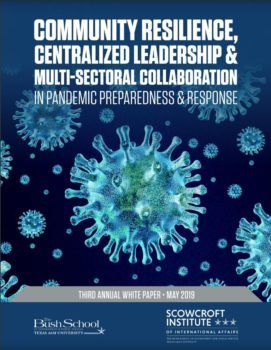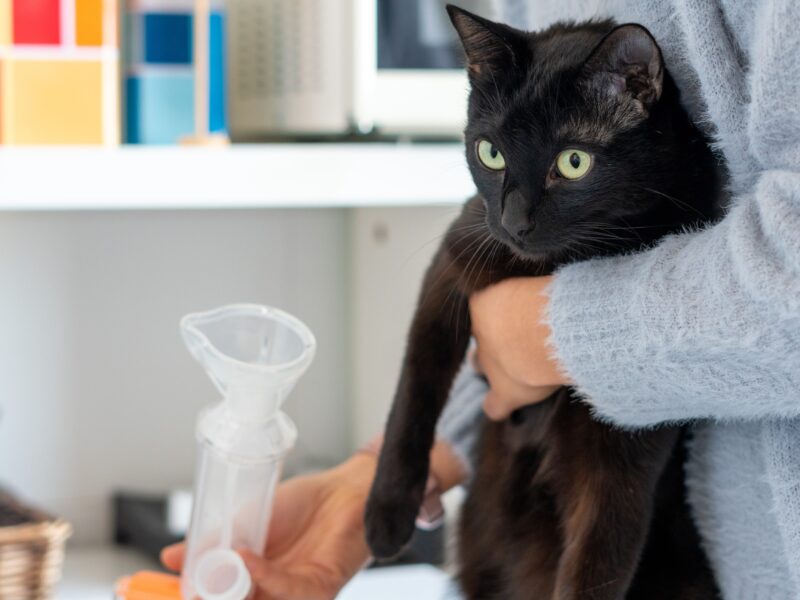Texas A&M, Scowcroft Institute Share Pandemic Policy Recommendations With U.S. Officials
Texas A&M University and the Scowcroft Institute of International Affairs released a major new study today to policymakers and government officials that provides strategic recommendations on how to improve pandemic and biosecurity preparedness and response to devastating infectious diseases like Ebola in Africa and measles in the United States.
Download a PDF of the group’s report
Over the last three years, Texas A&M and the Scowcroft Institute housed at the university’s George H.W. Bush School of Government & Public Service have produced critical thought leadership, research and policy, as well as programmatic recommendations — all structured to address the challenges the U.S faces globally in these areas.
The recommendations are intended to spark conversations among policy makers, host country leaders, U.S. government leaders, researchers and the academic community as well as implementers and responders to pandemic and biosecurity emergencies.
Key recommendations from the report include:
- Designate senior-level White House leadership for pandemic response and pandemic preparedness
- Donor and host nations must continue investments in health systems strengthening at the community level with specific attention to Global Health Security Agenda related priorities
- Host nations must reinforce and rethink the critical role of community health workers, religious leadership, and cultural factors in epidemic response
- Building trust between stakeholders of pandemic preparedness and response is crucial
- Place more value on applied interdisciplinary work within university reward structures
- Require strong national surveillance systems that help detect and monitor trends and risk factors for antimicrobial resistance; and
- Multi-sector coordination and whole-of-government planning, aimed at building resilient health systems guided by the “One Health” approach, can advance efforts to integrate human, animal, and environmental sectors in pandemic preparedness.
The 2019 white paper is based on 2018 research and intensive discussions with global experts and researchers.
The report was released today in Washington, D.C. at the Scowcroft Institute’s 3rd Annual Pandemic & Biosecurity Forum at the National Press Club.
The event features internationally renowned pandemic and international health and biosecurity experts discussing the current Ebola crisis in Africa and identifying specific policy changes and reforms necessary to improve pandemic and international biosecurity response strategies.
Notable speakers include:
- U.S. Sen. Richard Burr, (R-NC), Chairman, Senate Select Intelligence Committee
- ADM Brett P. Giroir, M.D., Assistant Secretary for Health, U.S. Department of Health and Human Services
- U.S. Rep. Bill Flores (TX-17), Member, House Energy and Commerce Committee, Texas A&M Class of 1976
- U.S. Rep. Michael C. Burgess, M.D. (TX-26), Ranking Member, House Energy and Commerce Subcommittee on Health
- Jim Greenwood, President and CEO, Biotechnology Innovation Organization (BIO)
- Ron Klain, former White House Ebola Response Coordinator (2014-2015)
- Andrew Natsios, Director, Scowcroft Institute of International Affairs, and Former USAID Administrator
- Gerald Parker, Associate Dean, Texas A&M University, and Former HHS Principal Deputy Assistant Secretary for Preparedness & Response
Media contacts:
- Sam Peshek, Texas A&M University Division of Marketing & Communications, peshek@tamu.edu
- Kelly Brown, Texas A&M University Division of Marketing & Communications, brown@tamu.edu




